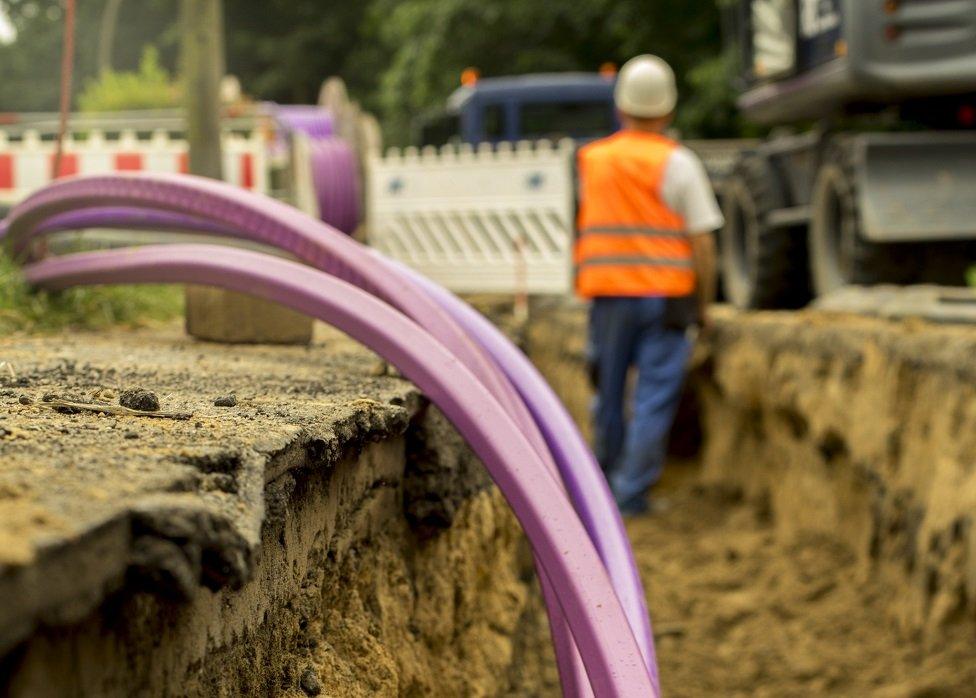New code of practice to limit road works disruption
- Published

New rules are being introduced in a bid to limit disruption from road works caused by utility firms.
In future, trenches dug in roads and pavements will have to be narrower - and then filled in quicker.
The Scottish government is bringing in a new code of practice to reflect modern ways of working and the fact that many underground cables are now more compact.
Ministers say it will help speed up the delivery of ultra-fast broadband.
It will also mean shorter periods of disruption for power, water and gas works which use these this technique.
Connectivity Minister Paul Wheelhouse said: "The Scottish government has listened to the views of companies who tell us that narrow trenching can help companies deliver fibre broadband faster and with less disruption to communities.
"We understand that utility companies operate in a competitive market. They are therefore constantly looking for ways to improve their efficiency and to reduce their costs in order to keep ahead of their competition. This has led to innovation in how infrastructure, such as broadband, is deployed.
'Minimal disruption'
"We have updated the code to enable narrow trenching to take place consistently, and in a manner which protects our pavements and road network, and this has the added benefit that will result in the faster deployment of broadband across Scotland and a reduction in the disruption communities face during the roll out itself."
The trenches will be less than 300mm (11in) wide and the code of practice will come into force immediately.
Julie Agnew, regional director for Scotland at Virgin Media, said: "As Virgin Media continues to invest in bringing ultrafast broadband to more areas of Scotland, this new code gives much needed clarity for networks to be built in a fast, flexible and efficient way with minimal disruption.
"We thank the Scottish government for working with us and creating an environment that encourages and supports broadband builders like Virgin Media."